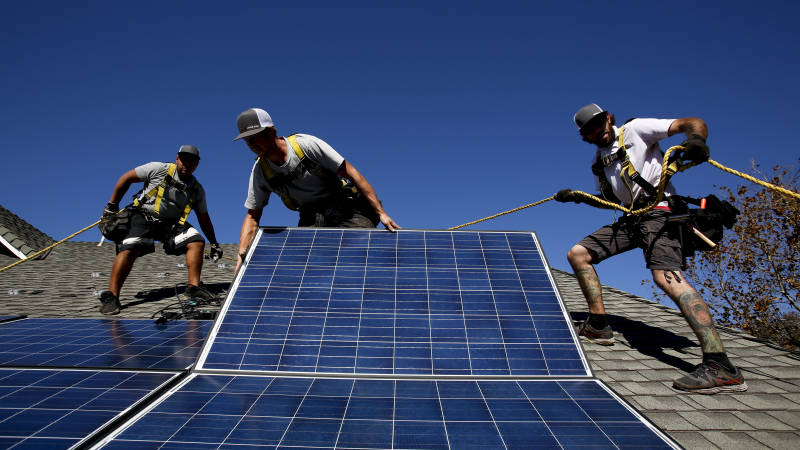"Activating underutilized roof space is a smart and efficient way to promote the use of solar energy and improve our environment," he says. "We need to continue to pursue aggressive renewable energy policies to ensure a sustainable future for our city and our region."
The legislation itself is even more explicit about San Francisco's particular interest in finding energy sources that don't contribute to climate change:
"As a coastal city located on the tip of a peninsula, San Francisco is vulnerable to sea level rise, and human activities releasing greenhouse gases into the atmosphere cause increases in worldwide average temperature, which contribute to melting of glaciers and thermal expansion of ocean water -- resulting in rising sea levels.
"San Francisco is already experiencing the repercussions of excessive CO2 emissions as rising sea levels threaten the City's shoreline and infrastructure, have caused significant erosion, increased impacts to infrastructure during extreme tides, and have caused the City to expend funds to modify the sewer system."
Reaction to the ordinance has been mixed. Two of San Francisco's former environment commissioners, both advocates for solar power, celebrated the news.
Fortune magazine notes that the new requirement is an extra hurdle for development in a city where new construction is already "notoriously difficult."
But Engadget suggests the impact of the law might not be that dramatic -- San Francisco isn't seeing a ton of new buildings that are under 10 stories tall, the website says.
And Vox argues that boosting city density might have an even bigger impact on carbon levels than the solar panel law.
The new requirement goes into effect at the beginning of 2017.
Copyright 2016 NPR. To see more, visit http://www.npr.org/.
